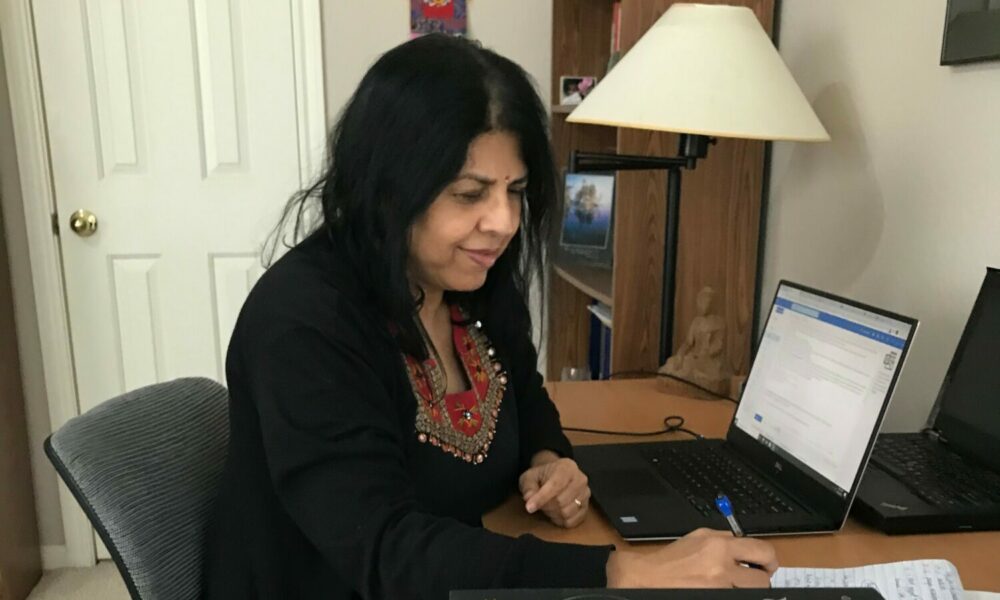

Today we’d like to introduce you to Chitra Divakaruni.
Hi Chitra, can you start by introducing yourself? We’d love to learn more about how you got to where you are today?
I am a professor at the University of Houston in the university’s nationally ranked Creative Writing program. I teach writers–a job I love. I am also a writer myself. I write novels, poetry and short stories, and I have 21 published books. (They are listed on my website, www.chitradivakaruni.com).
When I went to college in India, I did not know I want to be a writer, although I always knew I wanted to teach. After coming to the U.S. and receiving a Ph.D. in Literature from the University of California at Berkeley, I taught at several colleges in California while beginning to write and publish on my own. I joined a writers group in Berkeley, titled the Berkeley Poets Co-op, and this was very helpful to me. I highly recommend writers groups–they give you great feedback and encouragement and can make valuable suggestions for improvement. I also highly recommend getting a literary agent–mine helped me break into the publishing world. Over the years, I have been published in many countries, and some of my books have been made into films. About 20 years back, I was hired by the University of Houston. I love teaching here, and I love the city of Houston, which is so culturally rich and has so many resources and events for writers.
Would you say it’s been a smooth road, and if not what are some of the biggest challenges you’ve faced along the way?
At first, when I wrote, I was not very accomplished, and many of my early poems and stories were rejected by magazines when I sent them out. It was discouraging, but I was determined not to give up. My writer’s group gave me encouragement and good advice, and my husband was always supportive.
Thanks – so what else should our readers know about your work and what you’re currently focused on?
Although at first, I wrote poetry and short stories, in the last 15 years I have focused on writing novels. I am very interested in the immigrant experience, and many of my books deal with this topic. I am also interested in the culture of India, so some of my books re-tell the stories of Indian epics, with a woman at the center of the tale.
I am grateful for the fact that the books have been well received in the US as well as several other countries, and that several have been bestsellers. They have been translated into 29 languages, including Dutch, Hebrew, Bengali, Hungarian, Turkish, Hindi and Japanese,
My awards include, among others, an American Book Award, a PEN Josephine Miles award, a Premio Scanno (also known as the Italian Nobel) award, a Light of India award, a SALA award, 2 Pushcart prizes, and Allen Ginsberg poetry award, a Rona Jaffe Award, a Barbara Deming Memorial Award, and a Houston Literary Award. In 2015 I was included in the Economic Times’ List of 20 Most Influential Global Indian Women. I have judged several prestigious awards such as the National Book Award and the PEN Faulkner Award.
My novel One Amazing Thing has been chosen as a city-wide or campus-wide read in over 35 cities and institutions across the U.S.
I wrote the libretto for the opera River of Light, which has been performed by the Houston Grand Opera and Festival Opera in the San Francisco area.
I cannot claim to be proud of any of this. I see it as God’s blessing.
We’re always looking for the lessons that can be learned in any situation, including tragic ones like the Covid-19 crisis. Are there any lessons you’ve learned that you can share?
The Covid-19 crisis made me very aware of many things we take for granted–health, visiting friends and family, traveling, and even going to work without worrying about getting infected. I had to teach online for a year, and I had to learn how to work differently so that I could keep the attention of students who were suffering from zoom fatigue. I had to learn to engage them in meaningful conversation on zoom. I learned how to tell jokes so that classes would be more enjoyable. I did a lot more of one-on-one conferences because I realized many students were feeling pressured and isolated.
As for my own work, I had to look for new kinds of resources. I had started a historical novel set in India, but suddenly, it was no longer possible to travel to the spots that had been important in my heroine’s life. I had to rely totally on books, letters from that period, and newspaper accounts dating back to her time. Most important of all, I spent a lot of time looking at old paintings and photographs from that era to recreate the mood of the novel so I could write the necessary scenes authentically.
Overall, I learned that the human spirit is resilient–when faced with a challenge, it is often possible for us to navigate it if we keep calm and analyze the situation.
However, I fully realize that my jobs did not force me to face the kind of dangers that, for instance, first responders were facing. I am very respectful and admiring of the many people that worked–and continue to work–under truly difficult conditions during the pandemic.
Contact Info:
- Website: chitradivakaruni.com
- Instagram: https://www.instagram.com/divakarunichitra/?hl=en
- Facebook: https://www.facebook.com/chitradivakaruni
- Twitter: @cdivakaruni




Image Credits
Abhay Divakaruni










